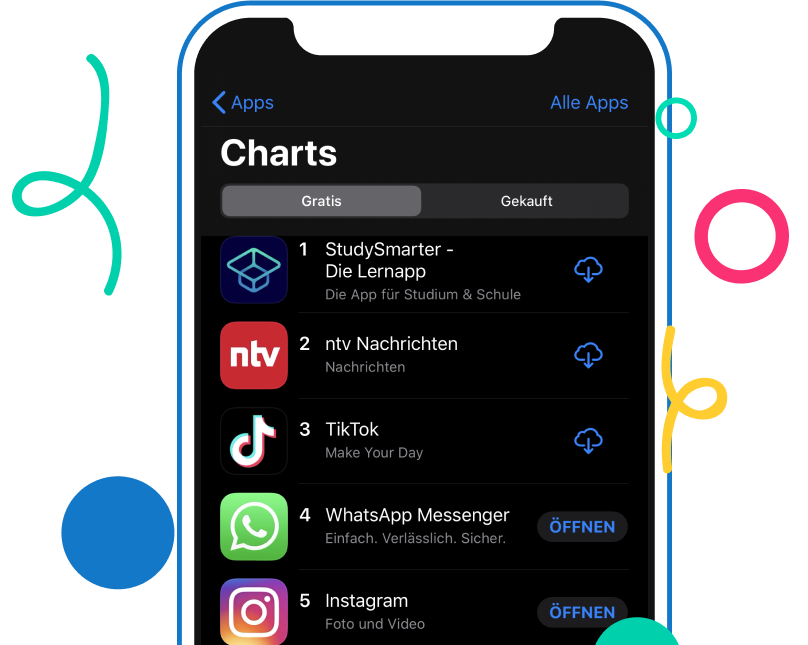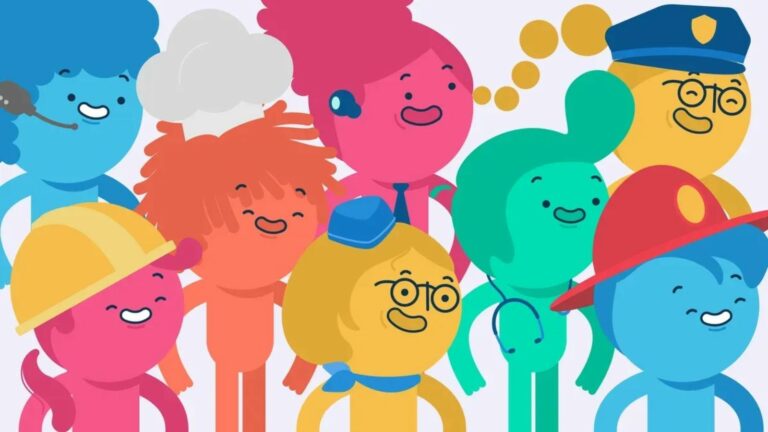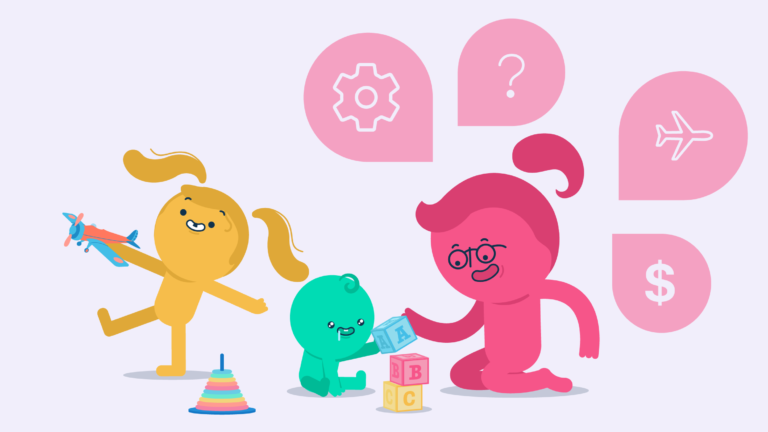What Does Teamwork Really Mean?
In case you’re heading into a job interview or have recently had one, you’re familiar with the teamwork question. See, whether you like it or not, working with other people will happen to you, so you might as well be ready for it.
So, what is teamwork? Working together, duh (I know you’re thinking this)! But teamwork at a workplace is more than just a group of people coming together, sharing the load, and working towards a common goal. In the business world in particular, teamwork is a deciding factor in how successful anything is. I mean, imagine a business where one person deals with everything – massive burnout and likely failure.
So, as we’re looking at it, teamwork is more than just working together: It’s about setting aside personal differences and conflicts, leaving selfishness behind, and truly looking for ways in which the common goal becomes the primary goal. And mind you, this is not just for work, this is for team projects at university too!
The Importance of Teamwork
It depends on who you ask. Ask an introvert and see how unimportant teamwork may be (don’t tell this to an extrovert, they might get a stroke). If you ask your boss, they might say teamwork keeps the business running. But, if you ask us, we would say that teamwork makes your life easier and teaches you valuable life skills along the way. Your professors might actually not care, but for the most part, teamwork at university promotes better results and covers a broader range of important points.
In addition to helping the business, here are a few reasons for fostering teamwork:
- Knowing the workflow. Different companies have different work policies and delegation practices. Still, if you only see yourself and your own tasks, you might be missing out on a chance to boost your performance, simply because you don’t know who might help you. Knowing your co-workers’ workflow (I’m not saying you need to memorise their schedules, although if you do, you can use some of our mnemotechnics) allows you to reach out to the right people who can help you if you hit a snag.
- Greater efficiency. I’ve worked in different teams, and it’s just a fact that those that have a fundamental understanding of who does what and when achieve much more in less time. If you’re preparing a group presentation and each person does one bit, it’ll certainly be more productive than if you had to do everything on your own.
- It promotes a more positive office/university culture. Isn’t everything nicer when you have someone to share a laugh with or grab a cup of coffee when your brain starts smoking and sparking? Working with others lets you meet and befriend people at a deeper level than just jerking your head and raising eyebrows at them as you pass them in the hallway. I’m not saying you need to be best friends with everyone you work with, but positive associations are bound to form.
- Performance diversity. Great minds do not always think alike. And what a boring world it would be if they all did! The thing with teamwork is that bringing different people means covering a wider range of topics and tasks and introducing different approaches and negotiating what works best.
- Shared responsibility. Whatever happens, you know you’re not alone in a good team.
The fact is that good bosses like decent teamwork because it helps develop company trust, but university teamwork is important too. The key lies in the positive exchange of opinions and their incorporation into the workflow.

That’s Not All! The True Benefits of Teamwork
The difference between reasons and benefits is in the time you see them come to fruition. True benefits of teamwork come after you’ve worked your way into a comfortable routine of working with others. Teamwork offers many pros:
- It boosts your soft skills. It’s not all about what you know and how quickly you can apply your knowledge to a problem. Knowing how to communicate properly and regulate your emotions in different situations is of the utmost importance for a healthy life, and teamwork teaches you a good deal about that!
- It helps your personal life too! As the hot girl summer of 2016 would say, ‘we all need someone to lean on’. When you lean on your co-workers and peers knowing that the job will get done, you can go home when you’ve finished your own tasks. Much better for keeping that work-life balance 😊.
- It widens your social circle. Some of the best friends I found over the years came from sharing one project or another (especially when everyone was pulling their weight).
Put these together, and you’ve actually got yourself a recipe for stress relief. I’m not saying work will never be stressful again, but it’s much more rewarding to work with people willing to be good team players.
Fantastic Teamwork Skills …
Teamwork teaches you soft skills, sure, but you need soft skills to be a good team player. Now what? Now you actually make an effort to improve your communication skills, delegate, take responsibility, and get the job done.
Communication is one of the most essential skills you’ll need to work on. People talk all the time. They talk to, at, and over one another, but how many people actually listen? Communication goes both ways. Learn to listen with understanding, not just waiting for your turn to speak. Listen actively and respond directly to the points your interlocutor has raised. Also, don’t nod your head at random when you’re not listening – we can all see through you.
Empathy is another one of those deep interpersonal abilities you need to nurture and cherish. Many people suffer from lower emotional intelligence, but learning to walk in someone else’s shoes makes you a great team player. In return, be honest (no need to be mean, but honesty is a quality to be proud of), share your opinions, and give advice, suggestions, and feedback. Another reason to work in good teams is the amount of feedback you’ll get. It really never hurts to hear one more recommendation.
Learn to be accountable. Nothing ever works by shifting the blame and pointing fingers. It just creates a poor atmosphere. If you’ve made a mistake, own it, grieve it, learn from it, and move on. However, this is a double-edged sword – I’m not saying to hide problems under the rug. If your co-worker or peer is shirking their duties, you’d help yourself and everyone else if you alerted the superior. Good teamwork only exists when everyone is willing to participate. With regards to that, you need to be able to manage conflict situations. You cannot be friends with everyone, that’s just the truth, but when working in a team, you cannot let any ole personal beef get in the way. It only makes you look highly unprofessional and childish. Sabotaging is strictly forbidden, so if you have a beef, learn to look past it if you can’t solve it. On the other hand, if you see conflict coming, be ready to defuse it – tell your co-workers to take a break, listen to them, and gently push towards compromise.
… and Where to Find Them
The first step towards self-improvement is identifying your weaknesses. If you’ve been told that your listening skills are off-kilter, take that to heart and start working on it. Practise mindfulness to be able to ground yourself in any conversation. Think before you speak, and ask yourself whether you’re actively contributing to the talk or just like the sound of your voice. If you constantly refuse to listen properly, you’ll lose friends and jobs.
Read. Seriously, there’s nothing better than reading to boost your empathy. Books take us into other worlds and lives, teaching us how to walk in other shoes, whether we like it or not. Educate yourself about different topics and NEVER EVER say things like, ‘Oh, it doesn’t affect me, so I don’t care.’ I hear many opinions like this regarding the recent overturning of Roe v Wade, but that is fundamentally wrong. It is crucial that we learn to accept that different people make different choices and that our job is to always promote the right to choose.
Similarly, read about LGBTQ+ rights to know what inhuman things the LGBTQ+ community has lived through. Take a stand for what is right – you have one life to live, so you might as well devote it to good deeds. And if you think I’m straying away from teamwork, you’re wrong. Empathy is not born in the office, and it doesn’t die there either. It is something you learn through every action (and inaction) you take.
Lastly, taking responsibility can be tricky. Nobody wants to admit they’re wrong, now do we? But the thing is, many times, it’s the easiest and the hardest thing to do. Sometimes you’re afraid of repercussions, sometimes too proud to admit you were wrong, but there’s no other way to conquer this than taking the bit between the teeth and simply coming clean.
Teamwork Makes the Dream Work
Many hands make light work – they wouldn’t say it if it wasn’t true. Being a good team player does not start in the office. It starts inside of you. By working on yourself and your communication skills, you’ll be able to navigate any pleasant or unpleasant situation. Listen actively and try to relate to others’ perspectives. Take feedback seriously. Keep your eyes on the prize.
To recap, teamwork brings many benefits to any workplace: better workflow, less stress, and an improved atmosphere and productivity. It helps you ‘keep calm and carry on’ in the face of any challenge and teaches you about yourself just as much as your co-workers.
Don’t be shy; go and say hello and see how great working in teams can be!












